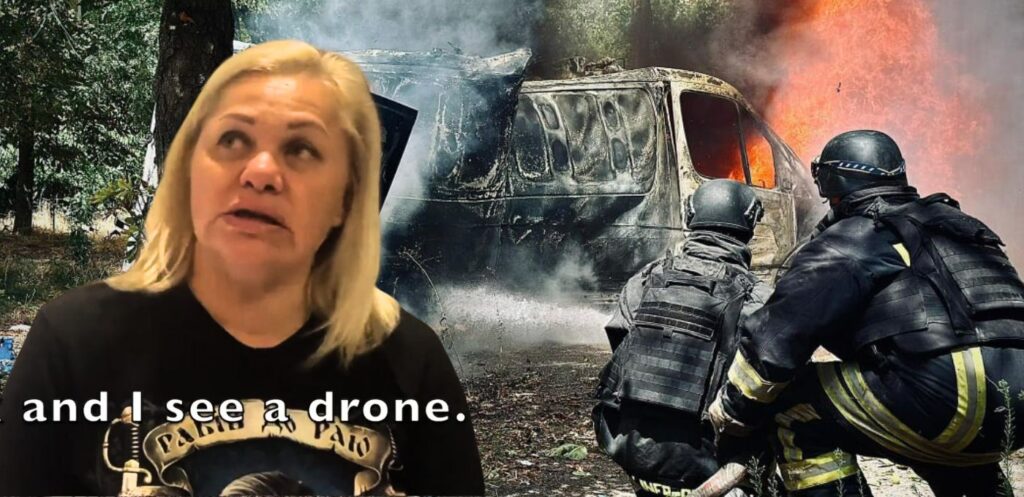NATO signs $700 million Stinger missile contract as it makes plans to boost arms production
WASHINGTON (AP) — NATO has signed a nearly $700 million contract to have member countries produce more Stinger missiles, one of many steps the alliance is pressing at its summit in Washington to get each country to boost its own weapons production capabilities.Outgoing NATO Secretary General Jens Stoltenberg announced the contract Tuesday at a Chamber of Commerce industry day focused on increasing NATO member countries’ defense manufacturing capabilities to deter future attacks. “There is no way to provide strong defense without a strong defense industry,” Stoltenberg said.The Stinger is a portable surface-to-air defense system that can be carried and fired by troops or mounted to a vehicle and used as short-range defense against aircraft. The Raytheon-produced system was one of the first weapons the U.S. shipped to Ukraine following Russia’s 2022 invasion. The NATO summit is occurring against a backdrop of uncertainty: U.S. political divisions delayed weapons for Ukraine for months and the upcoming presidential election is raising concern that U.S. backing — with weapons and troops — in case of threats against member countries may not always be guaranteed. Donald Trump, the presumptive Republican nominee, has boasted during campaign speeches that he’d encourage Russia to do as it wished with NATO members that do not meet their commitment to spend 2% of their gross domestic product on defense. Out of 32 NATO members, 23 are expected to meet the 2% commitment this year, up from just six before Russia’s invasion of Ukraine. Since the invasion, the U.S. has provided more than $53.6 billion in weapons and security assistance to Ukraine. This support, at a time when the U.S. also is sending weapons to Israel and Taiwan, has strained the U.S. stockpile. The rest of the NATO members and other international partners have provided about $50 billion altogether in weapons and security assistance, according to the Kiel Institute for the World Economy, an independent research organization based in Germany. National security adviser Jake Sullivan told the Chamber of Commerce that for the first time ever, the NATO countries will each pledge to make plans to strengthen their own industrial defense capacity. He said this will help the alliance “prioritize production of the most vital defense equipment we would need in the event of a conflict.”Two NATO officials, speaking on condition of anonymity to provide details that have not been announced publicly, said part of the summit is focused on having each member commit to submitting defense industrial plans over the next year on how they would boost internal production.The 32 members have widely varying defense industry sizes and capabilities, so each country’s plan could widely vary, from partnering with industry, to partnering with other countries, one of the officials said.___Cook reported from Brussels.
WASHINGTON (AP) — NATO has signed a nearly $700 million contract to have member countries produce more Stinger missiles, one of many steps the alliance is pressing at its summit in Washington to get each country to boost its own weapons production capabilities.
Outgoing NATO Secretary General Jens Stoltenberg announced the contract Tuesday at a Chamber of Commerce industry day focused on increasing NATO member countries’ defense manufacturing capabilities to deter future attacks.
“There is no way to provide strong defense without a strong defense industry,” Stoltenberg said.
The Stinger is a portable surface-to-air defense system that can be carried and fired by troops or mounted to a vehicle and used as short-range defense against aircraft. The Raytheon-produced system was one of the first weapons the U.S. shipped to Ukraine following Russia’s 2022 invasion.
The NATO summit is occurring against a backdrop of uncertainty: U.S. political divisions delayed weapons for Ukraine for months and the upcoming presidential election is raising concern that U.S. backing — with weapons and troops — in case of threats against member countries may not always be guaranteed.
Donald Trump, the presumptive Republican nominee, has boasted during campaign speeches that he’d encourage Russia to do as it wished with NATO members that do not meet their commitment to spend 2% of their gross domestic product on defense.
Out of 32 NATO members, 23 are expected to meet the 2% commitment this year, up from just six before Russia’s invasion of Ukraine.
Since the invasion, the U.S. has provided more than $53.6 billion in weapons and security assistance to Ukraine. This support, at a time when the U.S. also is sending weapons to Israel and Taiwan, has strained the U.S. stockpile. The rest of the NATO members and other international partners have provided about $50 billion altogether in weapons and security assistance, according to the Kiel Institute for the World Economy, an independent research organization based in Germany.
National security adviser Jake Sullivan told the Chamber of Commerce that for the first time ever, the NATO countries will each pledge to make plans to strengthen their own industrial defense capacity. He said this will help the alliance “prioritize production of the most vital defense equipment we would need in the event of a conflict.”
Two NATO officials, speaking on condition of anonymity to provide details that have not been announced publicly, said part of the summit is focused on having each member commit to submitting defense industrial plans over the next year on how they would boost internal production.
The 32 members have widely varying defense industry sizes and capabilities, so each country’s plan could widely vary, from partnering with industry, to partnering with other countries, one of the officials said.
___
Cook reported from Brussels.


